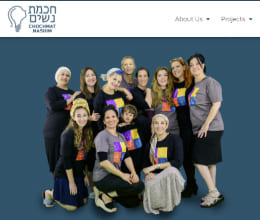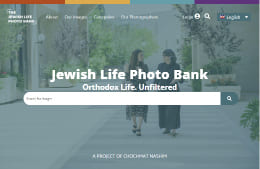“Why do you stay Orthodox?”
That was the question posed to me the other day when I wrote an emotional Facebook post. I had spent the day hearing painful stories of Jewish women who suffered solely because they did what their rabbis told them to do.
Even when the rabbis’ decrees went beyond the strict letter of the law, the women never thought to question their decisions. Because in Orthodoxy Jewish law touches on the most personal of matters, including the messy arrangements of divorce, the intimate rituals of family purity, and even deciding the fate of an unviable pregnancy. And we are taught to listen.
Hearing these stories, it struck me that we Orthodox Jewish women often go through a lot, even when we do everything right.
Maybe especially when we do everything “right.”
This was part of my post:
From growing up and learning the reasons behind our need for “modesty,” the pressure to marry, marriage with little preparation, the trials of pregnancy, birth control, family purity laws ( the pain of not be allowed physical comforted at the worst times), keeping Jewish law, and more often cultural law, keeping secrets and pain silent, the taboo of abuse, the taboo of divorce. Birth control? Often times not. And child after child in so few years. The expectations. The pressure …right now I’m just thinking about all that women go through in Orthodox Judaism and no not every woman, but many, and many in different times and different ways. And so often we are expected to suffer in silence that we don’t even realize what we went through until years later. What we endured and what we could not say. Women trapped in marriage? Sigh, it’s such a shame, but that’s the way it is. Years and years go by and most men – yes rabbis – shrug their shoulders. “Kacha zeh” (that’s how it is)
And someone asked me, like so many in the past: “Why do you stay Orthodox?”
And, I get it. I do. Why do I stay in a system that I feel can breed such pain, such discomfort, a constant need to fight?
Why stay in a system where marriage according to Jewish law means I and my daughters relinquish our freedom, trusting our future to the man we marry and the men of a religious court?
Why stay in a system where the ideal of modesty — that I believe in and uphold — is twisted, and taken to such extremes that women’s –girls’!– faces are blurred, left out, and torn down?
Why stay where I have little to no say in the policies that dictate my life? Where women are left out of the decision making process, and barred from being judges and rabbis where we have no chance of making change in policy?
The answer is simple if not easy.
I believe in God and Torah and know that most of the issues we face are cultural, not halachic (an issue of Jewish law). Knowing that difference makes all the difference to me.
It is not halacha to erase women.
It is not halacha to turn modesty into an extreme where women cannot discuss their body parts and the diseases that threaten them.
It is not halacha to allow a woman to be extorted in exchange for a divorce, to send her back to an abusive husband.
And it is not halacha to keep women from discussions and positions of influence in areas that affect their lives.
Some said I wasn’t being fair, that many women are happy in Orthodox Judaism. I am one of those women who are happy in Orthodox Judaism! Orthodox Judaism gives us our values, our community, our holy days, our perspective and our way of life. No, not exclusively, but it connects us to our generations and makes some sense of life — even when it slams against our modern sensibilities.
And that — exactly that — is why I stay. And why I, and many others, work towards change. In fact, it’s pretty much all I do. I connect with others who love Orthodoxy and we work together to make it better. We fight against the encroaching extremism. We show the difference between halacha and culture. We push back when women are marginalized, ignored, shunned, and erased. We work to make it better.
We don’t fight Torah. We fight FOR Torah. We fight for a healthy Jewish community, one where women are heard — and seen.
People are hearing us. They are seeing the difference. They are speaking out and speaking up and making real change in their communities.
WATCH our video and see the difference it makes in a community when women are heard. And join us!


